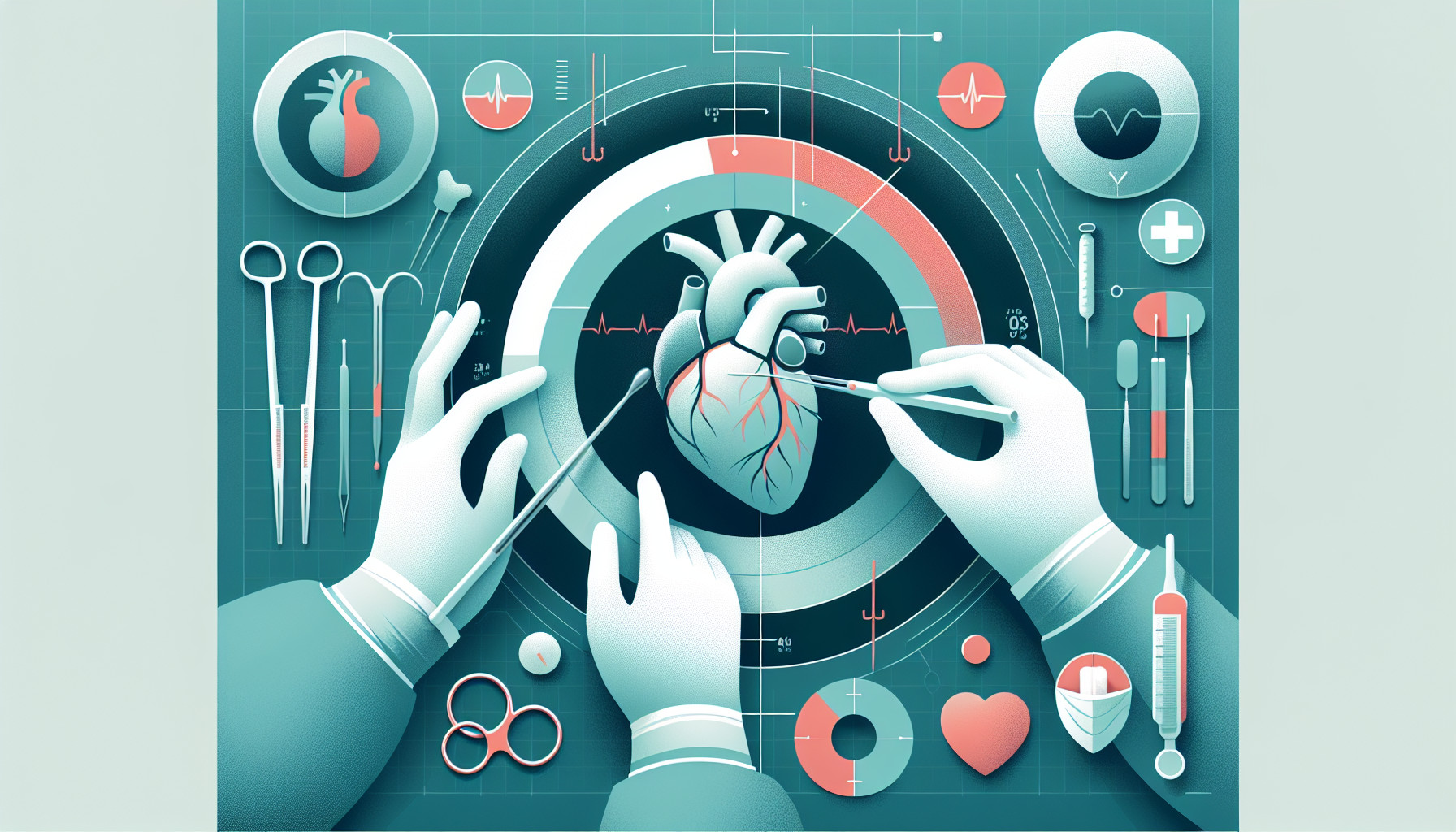Our Summary
This research paper discusses the rising use of a medical procedure called atrial fibrillation (AF) ablation. This procedure is used to treat a heart condition called atrial fibrillation where the heart beats irregularly and often rapidly. The increased use of this procedure is due to several factors including a growing number of people with this heart condition, better ways to diagnose it, the lack of effectiveness of medications, and the improved safety and effectiveness of the procedure itself over the past decade. However, the procedure can still result in serious complications.
The paper reviews ways to prevent, recognize, and manage these complications. It notes the challenges in comparing results due to differing approaches to the procedure, rapid technological improvements that can make previous methods outdated, and the varied patient population.
The researchers believe that new technologies will allow for more effective, efficient, and hopefully safer ways to perform atrial fibrillation ablation. However, as these technologies are adopted, it will be important to stay vigilant to avoid complications.
FAQs
- What is atrial fibrillation (AF) ablation and why is its use increasing?
- What are some of the potential complications of atrial fibrillation ablation, and how can these be managed?
- How do the researchers believe new technologies will impact the effectiveness and safety of atrial fibrillation ablation?
Doctor’s Tip
One helpful tip a doctor might tell a patient about cardiac ablation is to closely follow all pre-procedure instructions provided by the medical team, such as fasting before the procedure and stopping certain medications as advised. This can help reduce the risk of complications during and after the procedure. Additionally, it is important for patients to communicate any concerns or questions they may have with their healthcare team to ensure they have a full understanding of the procedure and what to expect. Following post-procedure care instructions, including taking prescribed medications and attending follow-up appointments, is also crucial for a successful recovery.
Suitable For
Patients who are typically recommended for cardiac ablation include those with atrial fibrillation (AF) who have not responded well to medications, have severe symptoms, have failed previous ablation procedures, or have a high risk of stroke or other complications. Patients with other types of arrhythmias, such as atrial flutter or ventricular tachycardia, may also be recommended for cardiac ablation if medications have not been effective in controlling their symptoms. Additionally, patients with structural heart issues, such as enlarged heart chambers or scar tissue, may benefit from ablation to correct the underlying problem causing their arrhythmia. Ultimately, the decision to recommend cardiac ablation is made on a case-by-case basis by a cardiologist or electrophysiologist, taking into account the patient’s specific medical history and condition.
Timeline
Before cardiac ablation:
- Patient experiences symptoms of atrial fibrillation, such as palpitations, fatigue, dizziness, and shortness of breath.
- Patient undergoes diagnostic tests, such as an electrocardiogram (ECG) and echocardiogram, to confirm the presence of atrial fibrillation.
- Patient may be prescribed medications to manage symptoms and control heart rate.
- If medications are ineffective, patient may be recommended for cardiac ablation.
After cardiac ablation:
- Patient undergoes pre-procedure evaluations, such as blood tests and imaging studies, to assess their overall health and suitability for the procedure.
- Cardiac ablation procedure is performed, where a catheter is inserted into the heart to deliver energy to the areas causing the irregular heart rhythm.
- Patient is monitored closely post-procedure for any complications, such as bleeding, infection, or damage to surrounding structures.
- Patient may experience some discomfort or fatigue in the days following the procedure.
- Patient is prescribed medications to prevent blood clots and manage any residual symptoms.
- Patient undergoes follow-up appointments and monitoring to assess the effectiveness of the procedure and manage any ongoing issues.
What to Ask Your Doctor
- What is the success rate of cardiac ablation for my specific condition?
- What are the potential risks and complications associated with cardiac ablation?
- How long will the procedure take, and what is the recovery time?
- Will I need to take medication after the procedure, and if so, for how long?
- Are there any lifestyle changes I should make before or after the procedure?
- How often will I need follow-up appointments after the procedure?
- How will I know if the procedure was successful?
- Are there any alternative treatments to cardiac ablation that I should consider?
- Will I need to make any changes to my current medications before the procedure?
- How experienced are you in performing cardiac ablation procedures, and what is your success rate?
Reference
Authors: Kisling AJ, Symons JG, Daubert JP. Journal: Expert Rev Med Devices. 2023 Jul-Dec;20(11):929-941. doi: 10.1080/17434440.2023.2257131. Epub 2023 Sep 15. PMID: 37691572
